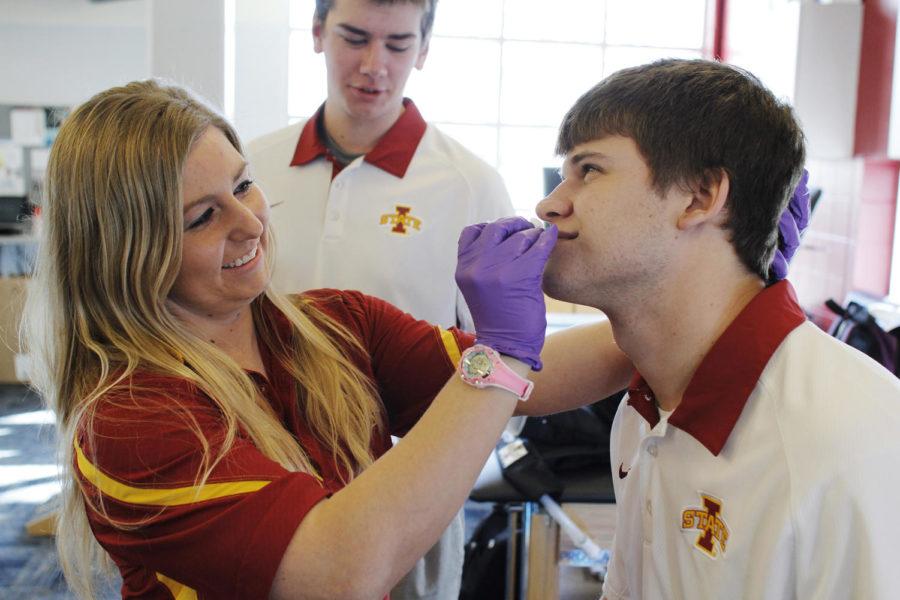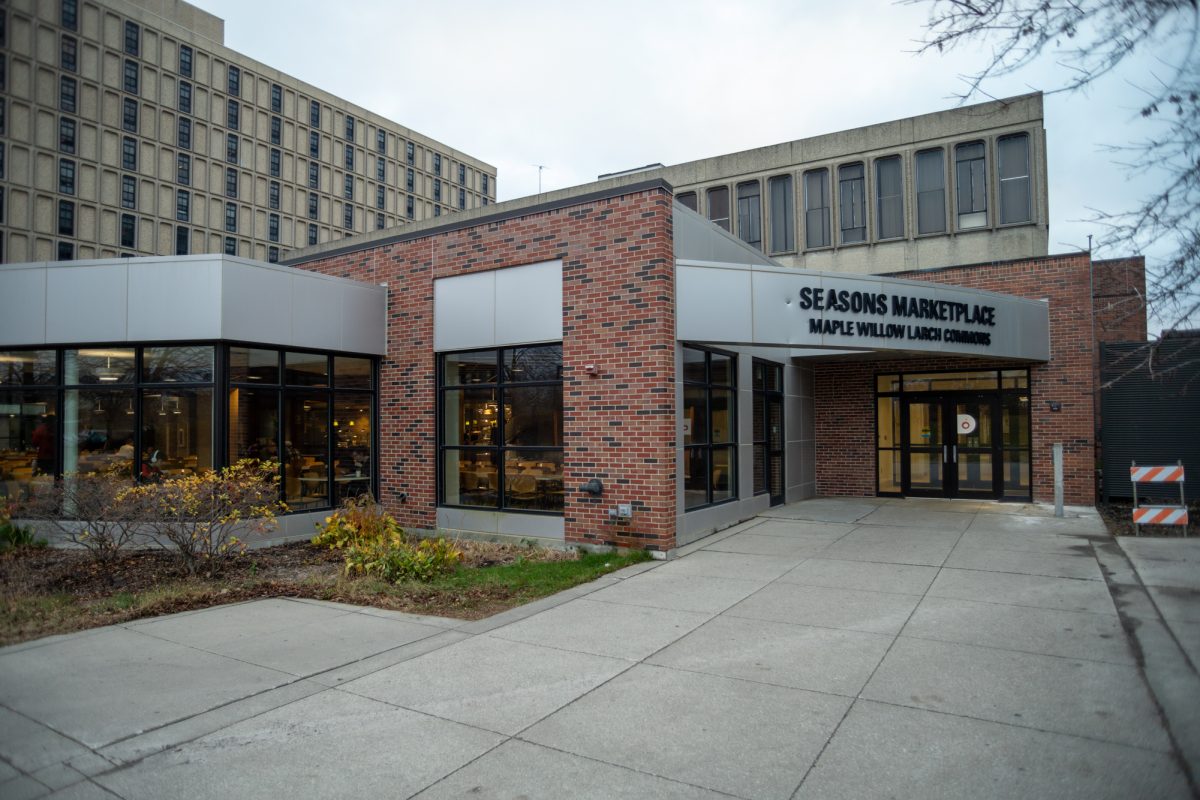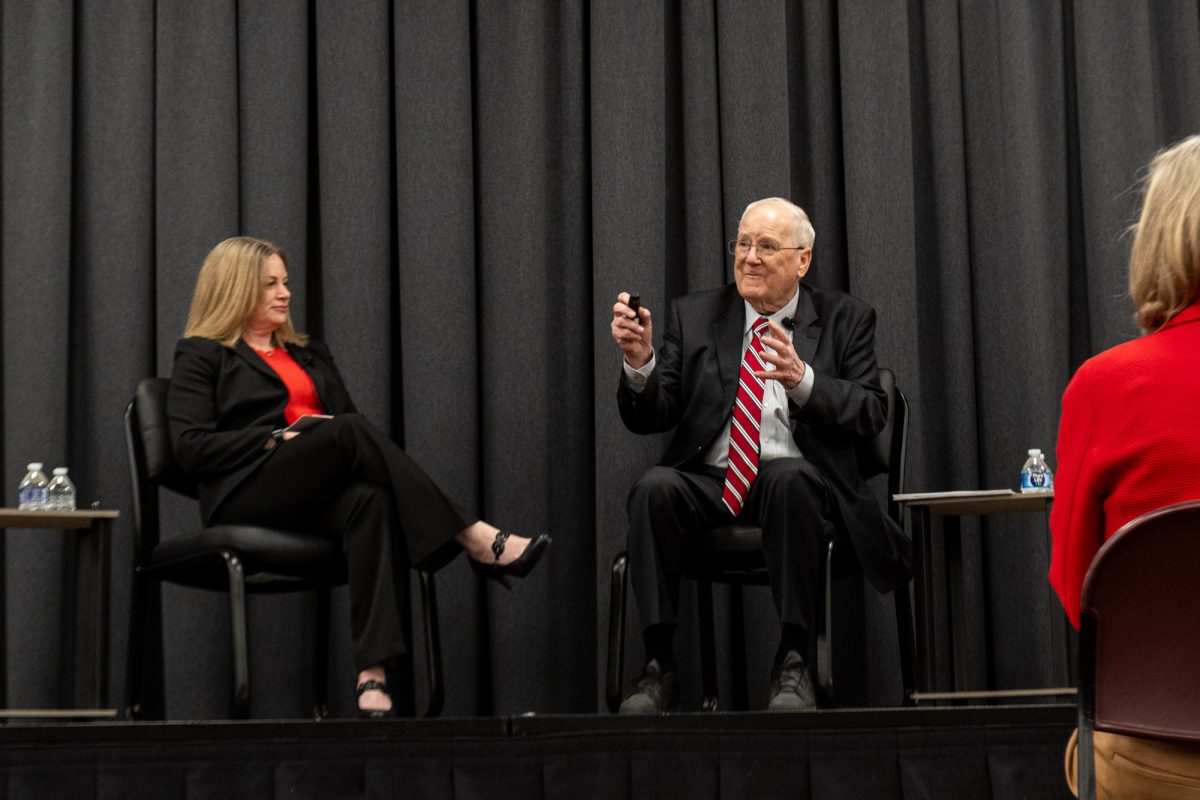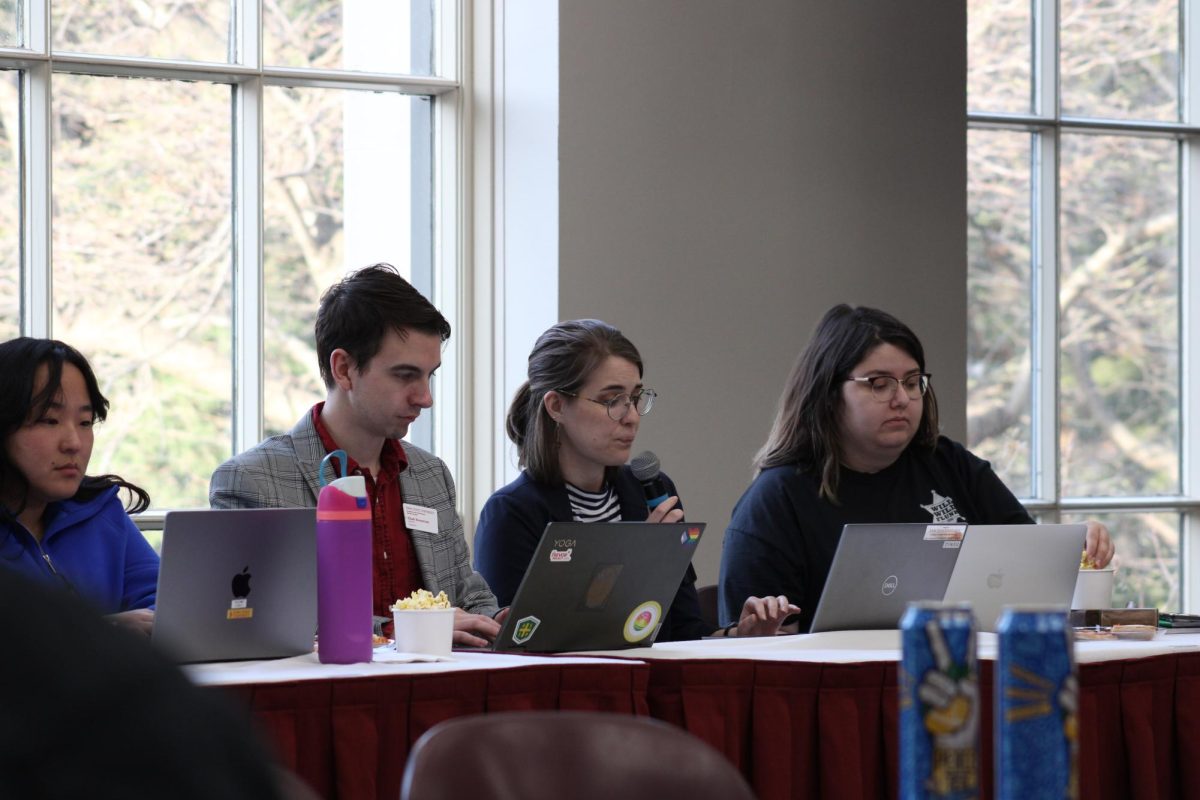Training days: ISU students protect others’ futures, prepare for their own
August 1, 2013
Broken bones, sprained knees and wrists, twisted ankles and concussions. It’s all in a day’s work.
Student trainers at Iowa State are given the unique opportunity to stand on the sidelines with players, coaches and other trainers so as to not only see how to treat game-time injuries, but also perform the actions themselves.
“Mentally, you got to be ready for any situation that could happen because at any time, anybody could go down with a knee injury or someone could get a concussion, so you have to be on your toes at all times,” said Jordan Hayes, a junior in athletic training.
However, before student trainers at Iowa State can mend the wounds of the injured, they must be accepted into the program.
Prospective students hoping to gain admission into the athletic training program must first complete their freshman year as a pre-athletic training major. During this time, students must maintain a grade point average of at least 2.5, gain 75 hours of on site observation and complete required courses.
After the completion of their freshman year, students must then apply for admission into the athletic training program where a selection committee will interview them.
Junior Matt Geren will be entering his first year in the athletic training program and said the rigors of the program do not stop with admission.
“Iowa State is actually a pretty unique scenario because they throw their first year students into football, so it’s kind of a crash course. I don’t want to say it’s the staple of the profession, but a lot of athletic trainers want to do football and a lot of other programs won’t do that,” Geren said.
Preparing for the worst
On March 31, 2013, the sports world was rocked by an injury so gruesome that many media outlets refused to show the footage. Kevin Ware, a guard for the Louisville basketball team, suffered a compound fracture in his right leg while trying to block a shot against Duke during the NCAA Tournament.
The following moments were tense as fans turned away and players buckled to the floor in horror. As trainers took to the court to treat Ware the best they could, one could only imagine how to react in such a situation.
A situation athletic trainers are constantly preparing for.
“Athletic trainers kind of have to be cool under pressure because something like that doesn’t always happen, so you have to make sure it’s not life threatening first and make sure everyone around them makes space,” Geren said. “If you’re freaking out, the athlete is going to be freaking out and that’s not a good situation.
“What you’d do is cover it up and stabilize him to make sure he’s not going into shock and then get him off the field or court as quickly as you can, get him to a hospital so a physician can make a proper decision after that.”
Wes Sokol, a junior in athletic training, says that preparation for the worst is the key.
“You just try to prepare yourself for anything that could happen. Someone could tear their ACL in an instant and you could never know it,” Sokol said. “We make sure we know what to do when the time comes and prepare ourselves.”
Preemptive action is something student trainers at Iowa State go through before every game. Each trainer is given a job in case of an injury such as Ware’s.
“We do a lot of practicing. Before the football season last year, we went through our emergency action plans. We have those set up and we know who’s going to be doing what incase of an emergency,” Hayes said. “We have everything planned out before the game even starts of what would happen in case of an emergency.”
Strictly business
With so much pageantry and action happening inside Jack Trice Stadium or inside Hilton Coliseum, it’s easy for one’s mind to wander into the fan realm. Something athletic trainers cannot afford to let happen.
“It’s very exciting and being on the sideline is great, but you have to make sure that you keep your game face on and remember that you are there for the players and not to watch the game,” Hayes said. “We got to make sure that we’re there mentally. You want to be there, you want to make a good impression.”
Keeping a relationship with the players is important in building trust for injury scenarios, but keeping it a business relationship is important, said Sokol.
“When you first see some of the athletes you know, that you’ve seen on T.V., you kind of get star struck, but you have to keep that business mentality because it is your job,” Sokol said. “You can talk to them and make them comfortable, but you can’t be a crazy person on the sidelines.”
The hands-on experience is something the trainers value as a critical learning experience for their futures, not only as trainers, but also as members of society.
“Iowa State athletic training does have a high reputation and giving students that sort of exposure the first year really does help with the quality of the people it produces,” Geren said.
“I’m proud to be a part of that.”






